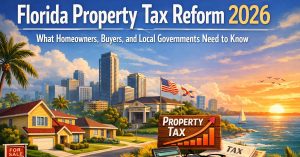Many older Americans consider their home to be their greatest financial asset in addition to being a place to live. Many anticipate that selling after decades of ownership will generate a sizable nest egg to fund retirement or assist their families in accumulating wealth. But according to recent research from the Federal Reserve Bank of Philadelphia, older home sellers might be making a lot less money than their younger counterparts. The findings are alarming and unexpected.
A Growing Age Gap in Home Sale Returns
According to the study, when compared to younger sellers, homeowners over 70 consistently receive lower returns on their home sales. The age effect persisted even after controlling for variables such as the length of ownership, local market conditions, and the date the home was bought.
The researchers found that the gap widens over time and first manifests around age 70. For example, an 80-year-old seller makes about 0.5% less annually than a 45-year-old seller. Given that the average home is worth hundreds of thousands of dollars, that translates into a 5% lower sale price over an average ownership period of 11 years.
The research also shows that this trend is widespread across the country, with only a few small states — Hawaii, Indiana, and Maine — deviating from the national pattern.
Why Older Sellers Earn Less
So, what’s driving this financial gap? The Fed’s research points to several interconnected factors.
1. Deferred Maintenance and Fewer Renovations
Older homeowners are far less likely to have kept up with costly renovations or modern upgrades, such as kitchen remodels, new bathrooms, or system overhauls. Many have lived in the same home for 30 years or more, and what was once modern may now feel dated to buyers.
“Homes sold by older people are less likely to have major updates and are more likely to show signs of deferred maintenance,” the researchers wrote.
These homes are often sold “as-is,” which can turn away buyers or invite lower offers. The study estimates that a lack of updates and repairs explains about 25% of the overall age gap in housing returns.
As Nikki Buckelew, CEO of the Seniors Real Estate Institute, explained:
“It’s not that they can’t renovate — it’s just exhausting at the stage of life they’re in. Many older sellers don’t want to deal with contractors, permits, and disruption.”
2. Private ‘Pocket Listings’ Limit Competition
The increasing use of pocket listings, or homes that are privately marketed to a select group of buyers instead of being listed publicly on the Multiple Listing Service (MLS), is another significant factor.
Although convenience or privacy may make this seem alluring, it also lessens visibility and restricts competition among possible customers. Sellers frequently leave with less money if there aren’t several offers that raise the price.
Older sellers frequently depend on their agent’s advice; some agents even support pocket listings because they give them the opportunity to represent both parties in the transaction.
3. Dual Agency and Misaligned Incentives
Evidence of some real estate agents prioritizing high sales volume over high sale prices was discovered by the Fed’s study. An agent may be more driven to close deals fast than to negotiate the best price for the homeowner when they represent both the buyer and the seller, a practice known as dual agency.
This issue is especially common among older sellers, who may be less familiar with market dynamics or more trusting of professionals handling the sale.
“Some agents contact preferred investors for quick, easy transactions, sometimes without inspections,” Buckelew said. “The homeowner loses potential equity as convenience is prioritized over their best interests.”
4. Selling to Investors at a Discount
Additionally, older sellers are more likely to sell to real estate investors. Older homeowners are frequently the target of investors who promise to “make it easy” and offer quick cash deals, but usually at a steep discount to market value.
Although seniors who wish to move quickly or avoid home repairs may find this convenient, it frequently means leaving thousands of dollars on the table.
Some investors even make lowball offers seem alluring by providing emotional or useful incentives, such as handling leftover belongings or covering moving expenses.
5. Lack of Market Awareness
Many elderly homeowners may not be aware of the increase in value of their property after living in it for decades. They might list below market value or accept the first reasonable offer if they don’t have current market knowledge.
As Buckelew notes:
“Many have not followed the real estate market. They really don’t know how much their home has appreciated in the past couple of decades.”
The Bigger Picture: Boomers, Wealth, and the “Silver Tsunami”
Baby boomers, who are all over 60, currently make up 38% of homeowners and own $17.3 trillion in housing wealth, which is equivalent to half of all home equity in the United States, according to Freddie Mac.
These lower sale returns could have a major impact on retirement security and intergenerational wealth transfer as this generation ages and starts to sell, a trend economists refer to as the “silver tsunami.”
Tens of thousands of dollars less can be saved for retirement or left as a family inheritance if a home’s value drops by even 5%.
Policy Reforms Show Promise
There’s some good news: policy changes can help close the gap.
For instance, a rule requiring more transparency for private listings was put into effect by the local MLS in Illinois. The difference in income between middle-aged and older sellers decreased from 0.8% to 0.4% following the modification.
This suggests that stronger listing regulations and better oversight of agent practices can improve outcomes for older homeowners.
How Older Sellers Can Protect Their Home’s Value
Based on the Fed’s research and insights from real estate experts, here are four practical steps older homeowners can take to maximize returns:
1. Always List on the MLS
Avoid private or pocket listings. Public exposure ensures that as many people as possible see your home, which encourages competitive offers and fair prices.
2. Get Multiple Price Opinions
Before listing, consult at least three real estate professionals for their opinions on pricing and marketing strategy. Don’t rely solely on one agent’s estimate.
3. Choose a Senior Real Estate Specialist
Select an agent with senior transition experience; these professionals are knowledgeable about the emotional, practical, and financial challenges associated with downsizing or selling later in life.
4. Have a Trusted Adviser or Family Member Review Offers
A family member, attorney, or advocate who is qualified to review offers, contracts, and closing documents should be included. This ensures your safety and prevents you from being forced into a bad deal.
Looking Ahead
The Federal Reserve’s findings draw attention to an important but frequently disregarded factor in the housing market in America: the confluence of equity, fairness, and aging.
It will be more crucial than ever for families, real estate agents, and legislators to make sure that older sellers receive fair treatment and that their hard-earned equity is safeguarded as millions of baby boomers get ready to sell their homes in the upcoming ten years.
Frequently Asked Questions (FAQ)
1. Why do older homeowners sell their homes for less?
Older sellers frequently have homes that require repairs, depend on quick or private sales, or are led by agents who put expediency ahead of profit. When compared to younger sellers, these factors collectively lower sale prices.
2. What is a pocket listing, and why is it risky?
A pocket listing is a home marketed privately rather than on the MLS. While it offers privacy and convenience, it limits exposure to buyers — usually resulting in lower sale prices.
3. What can older homeowners do to get the best price?
List publicly on the MLS, work with agents who specialize in senior clients, get multiple price opinions, and involve trusted advisers in decision-making.
4. How much less do older sellers make compared to younger ones?
On average, sellers over 80 earn about 5% less than those in their 40s over the typical 11-year ownership period.
5. What policy changes could help older sellers?
Reducing the age gap in housing returns can be achieved by strengthening dual agency regulations, requiring transparency in private listings, and increasing consumer education regarding fair listing practices.






